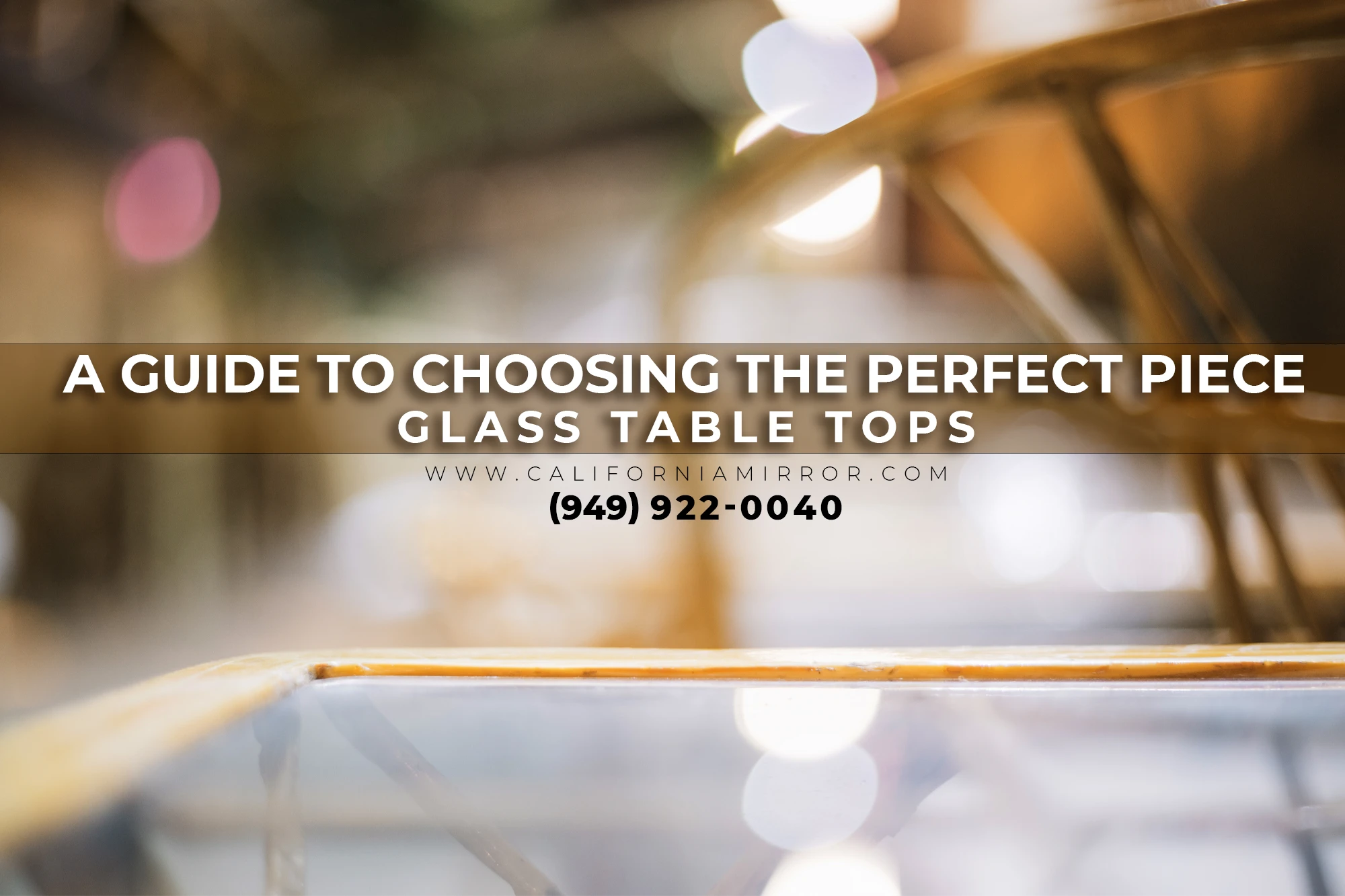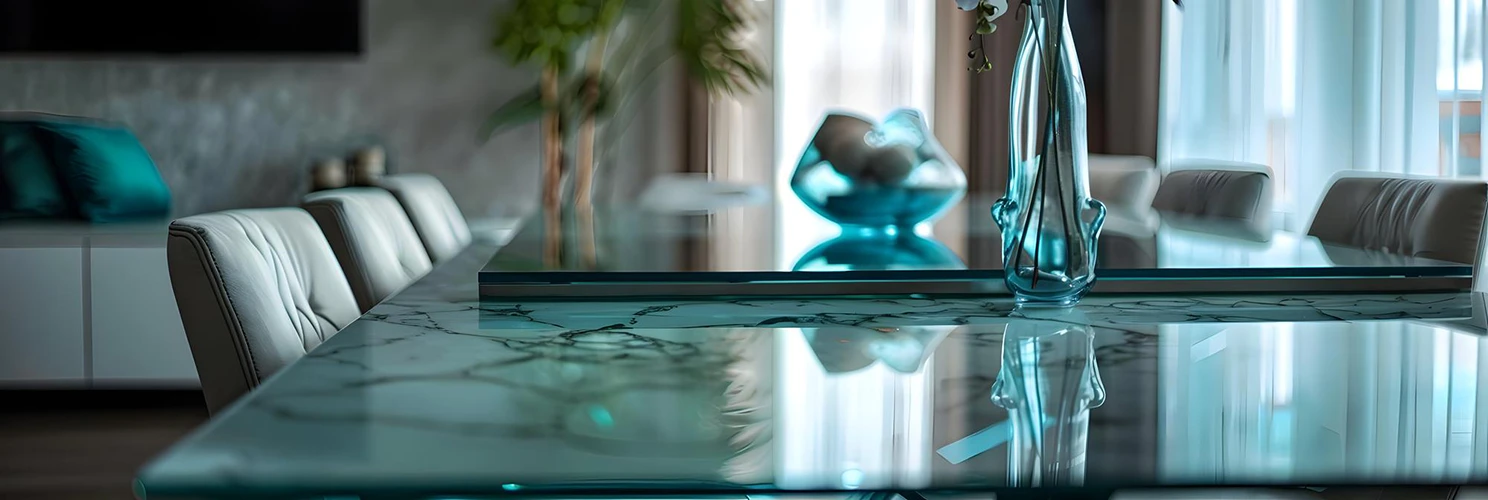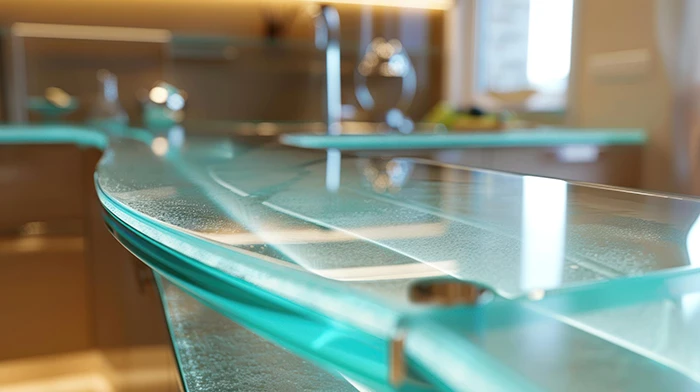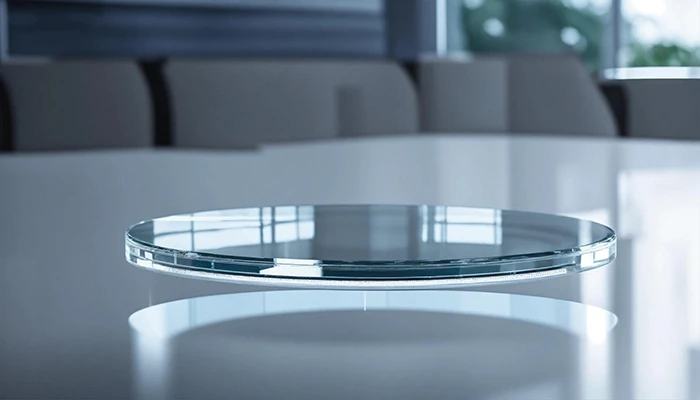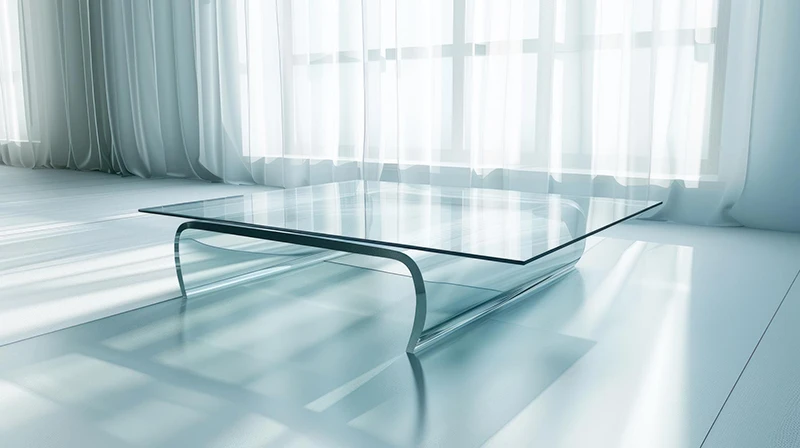Imagine a sleek, modern table, its surface a mirror reflecting the world around you. It’s not just a piece of furniture; it’s a canvas for your style, a statement piece that says, “I know what I like.” That’s the power of a glass table top.
This article aims to explore the various types of glass table tops, factors to consider when making a purchase, popular styles, care tips, and installation options.
What Are the Different Types of Glass Table Tops?
Glass table tops come in various types, each with its own unique characteristics:
| Type | Description | Advantages | Disadvantages |
| Tempered Glass | Most common type, known for its strength and safety. It’s heat-treated to make it more resistant to breakage. | Strong, safe, affordable | Can shatter into small pieces if broken |
| Laminated Glass | Consists of two or more layers of glass bonded together with a plastic interlayer. It’s even more durable than tempered glass and offers protection against shattering. | Extremely durable, safe, can be used with safety glass | More expensive than tempered glass |
| Frosted Glass | Provides a translucent or opaque look, adding a touch of privacy or visual interest. | Adds privacy, can create a unique aesthetic | May be less durable than tempered or laminated glass |
| Tinted Glass | Available in various colors, tinted glass can add a unique aesthetic to your space. | Adds color and style, can reduce glare | May be less durable than tempered or laminated glass |
| Curved Glass | Glass that has been bent or curved to create a unique shape. | Adds a modern and stylish look | Can be more difficult to install and clean |
| Patterned Glass | Glass with etched or sandblasted patterns. | Adds visual interest and texture | Can be more difficult to clean |
Note: The durability and safety of glass table tops can vary depending on the thickness and quality of the glass. It’s important to choose a table top that is appropriate for your needs and the intended use of the table.
What Factors Should I Consider When Choosing a Glass Table Top?
When choosing a glass table top, consider the following factors:
- Glass type and thickness: The type and thickness of the glass should be appropriate for the table’s size and intended use. Thicker glass is generally more durable.
- Size and shape: Measure your space to ensure the table top will fit comfortably. Consider your needs and the overall style of your room.
- Edges and finish: Beveled or polished edges can enhance the overall look and safety of the table top. The finish should complement your existing decor.
- Safety considerations: If you have young children or pets, consider using corner guards to prevent injuries. Ensure the table has a sturdy base to support the glass top.
- Maintenance: Glass is relatively easy to clean with a mild detergent and soft cloth.
What Are the Different Styles of Glass Table Tops?
The style of your glass table top can significantly impact the overall look and feel of your room. Here are some popular options:
- Classic and elegant: Rectangular shape, clear glass, beveled edges.
- Modern and sleek: Organic shapes, frosted glass, tinted glass.
- Unique and eye-catching: Geometric patterns, mosaic elements, LED lighting.
Care Tips for Glass Table Tops
- Regular Cleaning: To keep your glass table top looking its best, it’s important to clean it regularly. Use a mild detergent and soft cloth to remove dust, fingerprints, and other marks. Avoid using harsh chemicals or abrasive cleaners, as these can scratch the glass surface.
- Protecting from Heat: Always use trivets or coasters when placing hot items on your glass table top. Heat can cause cracks or discoloration, so it’s essential to protect the glass surface.
- Handling with Care: Glass is a fragile material, so it’s important to handle your table top with care. Avoid dropping or banging it, as this can cause damage
Installation Options
There are several options for installing a glass table top:
-
Tabletop Connectors
Tabletop connectors are metal or plastic clips or brackets that attach the glass top to the table base. They’re a popular and easy-to-install option.
-
Silicone Adhesive
For a more permanent and secure bond, silicone adhesive can be used to attach the glass top to the base. This option is often used for custom-made or heavier tabletops.
-
Professional Installation
If you’re unsure about installing the glass top yourself, consider hiring a professional to ensure a safe and secure installation.
Conclusion
By carefully considering these factors, you can choose a glass table top that adds both beauty and functionality to your home or office. Remember to care for it properly to ensure its longevity and maintain its stunning appearance.
